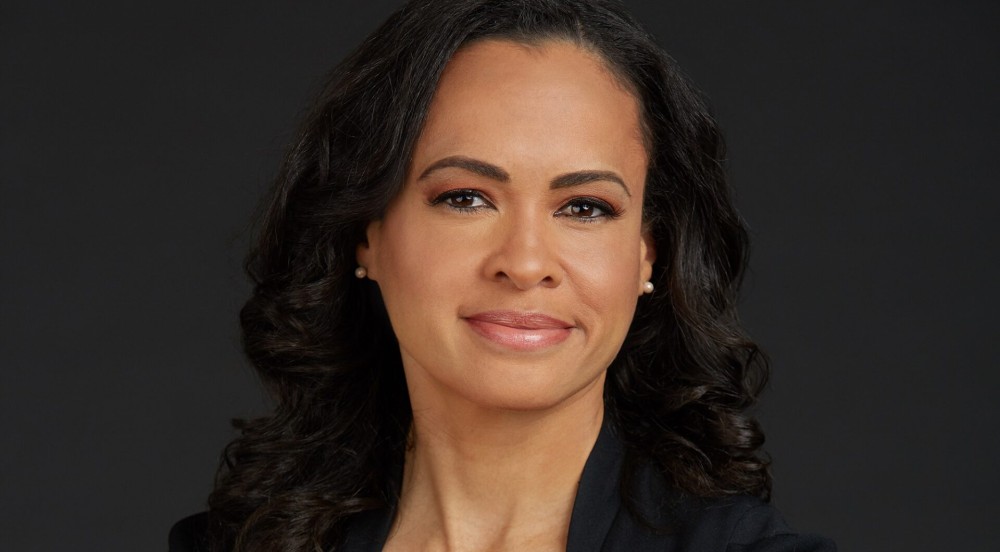As an Emmy-award winning news anchor, Linsey Davis is no stranger to facilitating difficult conversations. The nuances of the MeToo Movement, President Obama's presidency and acts of terrorism—she's covered it all. While occupying a unique digital space to share current events, Davis fully understands that her expertise does not make it any easier to break down these topics for young children. With her fourth book How High is Heaven?, which came out last month, she is tackling the challenging conversation of where we all go when we die in a way that is sensitive enough to come across to young readers.
EBONY: You've had such an illustrious career promoting diverse stories in relationship to our ever-changing world. What inspired you to want to write children's books?
Linsey Davis: What inspired me was having my son, who's going to be eight years old next month. When I was reading books to him as an infant, I started realizing how deliberate and intentional I had to be to find books with characters who look like my son. It's so important for me that he grow up with seeing mirrors, reflections of himself, in books. Also, it is important that he see windows, where he can peer into worlds that are unfamiliar to his own. In this past decade, there's been a big shift with the creation of more diverse books prioritizing inclusivity. So, I'm really excited about the evolution of where we're going in this space as it's become a passion of mine.

It's wonderful to see representation in stories that tackle heavy topics, especially as it can be challenging enough to explain such things to younger children. As we still endure a season of loss in the pandemic, how can parents use your books to help guide their children through this time?
The goal is that adult readers will be able to recognize this story as part of starting a conversation about grief. We've passed a grim milestone of more than 900,000 Americans who've lost their lives to COVID-19. There was a piece in a pediatrics journal a few months ago that talked about how 1 in 4 of those who died were primary caregivers. This means more than 200,000 children have essentially been orphaned in a way by COVID-19. They've lost a person that was their day-to-day person—a mom, dad, grandma or grandpa. Because of this, there is a need to have this conversation because we are still in a nation of morning. We lead in the number of deaths from COVID. I do think that the idea of heaven and death is already a difficult conversation for adults to have. Imagine trying to process that as a child. What I really tried to do with How High is Heaven? is to take a whimsical approach to the topic and meet kids where they are.
The book was largely inspired by my son who asked where his grandmother was, who passed away when he was a year old. He was even looking out the window to heaven and said "I don't see her." So in the story, this little boy iss trying to build a path directly to heaven to see his grandmother. He eventually realizes that's not how you get there. As a lesson learned along the way, he realizes that people should enjoy having time here on Earth with the promise that one day, we would be reunited with our loved ones again. Also, it gives us all a little hope, right? Rather than to think that a person is just gone forever when they pass, we can get a little bit of a relief from the sorrow when think that death is a "see you later" instead.

With more options for sharing unique stories accessible to the community, especially via digital platforms, how can storytelling be a bridge for increased representation?
I really am focused on the streaming space right now. The idea that in your pocket, on your wrist, at your desktop, we have so much access. In so many ways prior to streaming, we were limited to the TV at home; we had to wait until after work or after school to be informed. Or, we needed to have a physical newspaper in our hands or to be next to the radio. Now we just have it everywhere, in every option, for every kind of entertainment. If we're looking for a digital book, we can do that. Children's books are now readily available on the iPad. We have access to news at our fingertips. There's so much that we are afforded by by having the luxury of this digital era.
I often liken this time to when we were at the cusp of this transition from radio to TV with regard to news. It's another new frontier. We're moving from TV to this streaming space into this digital space. However the implications can be unlimited. This time has opened up this brand new landscape of opportunity and visibility. I'm just amazed to see it all and how it unfolds.













